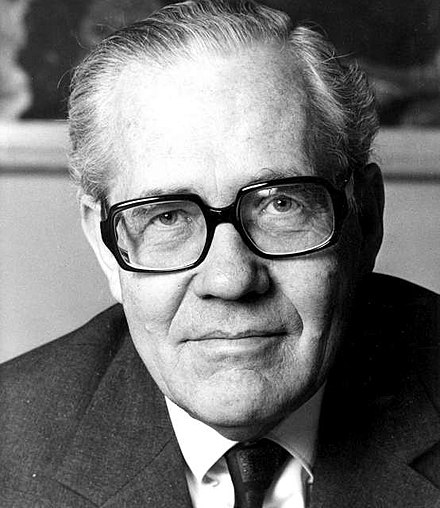|
|
A Letter from Oregon
Dear Friends of Dignity,
For me, the mass shooting at Umpqua Community College in Roseburg, Oregon hit it too close to home. Not only because it occurred in my home state (again), not only because it struck another innocent educational institution, not only because my husband works at a community college, but also because I've witnessed the deterioration of a person's life that ultimately called for a swat team.
I hope all of us agree that these situations are complex; there is no simple solution, no easy answers, no short-cuts to the social change we need to prevent mass shootings. Furthermore, though I have worked in education, mental health, and social activism all of my life, I wouldn't dare to present myself as an authority on mass shootings.
Yet, I, along with my colleague Evelin Lindner, have a 25-year understanding of a particular dynamic that we consider a missing link, a common denominator in the conversation about violence.
Unfortunately, I have to start this commentary by dismantling some enormous obstacles to understanding this missing link:
- One, this missing link doesn't fit into Western notions of individualism: It is relational dynamic.
- Two, it doesn't fit into hyper-individualistic models of responsibility that allows us to conveniently offload blame and shame onto individuals, families, religions, ideologies, and politicians: It requires a courageously collaborative understanding of responsibility.
- Three, it doesn't fit into sound-bite seeking media that keep us on an emotional roller coaster of hope and despair.
Dear Friends, please allow me to defy these obstacles and name this missing link, this deadly dynamic, this all-to-common, common denominator in mass shootings: The Humiliation Dynamic (Klein, 1991) — the real or perceived experience of being demeaned, devalued, disgraced, and excluded as a human being.
If you don't get it, don't worry: The Humiliation Dynamic has long been neglected in the scientific literature, which has been limited by a highly individualistic lens.
Humiliation is a relational dynamic. It involves interactions between victims, witnesses, and humiliators. When humiliation occurs, it impacts everyone in the equation. My colleagues and I call it a “nuclear bomb of emotions” (Hartling, Lindner, Spalthoff, & Britton, 2013). Think of the humiliating excessive force we've seen used by unskilled police officers and the humiliating killing of police officers serving their communities.
Humiliation is a diverse dynamic. It is an internal experience, a interpersonal/social experience, and a systemic experience, resulting in depression, social exclusion, alienation, and, as we have seen in mass shootings, retaliation.
Humiliation is a pervasive dynamic: Playing out on playgrounds, in board rooms, and in international relations.
So what is the root cause of mass shootings?
Some say it is easy access to guns. There is a gun for everyone in America. Yes, we must do more to decrease easy access and increase gun safety. Yet, most people with guns do not shoot people.
Some say it is mental illness. Yes, YES! We must do more to support the mentally ill in our society with affordable services. Yet, most people with mental illness do not shoot people.
Some say it is chronic social conditions, e.g., poverty, racism, growing economic inequality. Yes, YES, YES! We must do more to reduce social injustice and increase opportunity for all people. Yet, most people who suffer from poverty, racism, economic inequality do not shoot people.
Answer: All of the above and something more. Even most people who experience chronic or acute humiliation do not shoot people. But some do, and we can do something about it.
We can't wait for our leaders to lead us through these tragedies, each one of us needs to plant the seeds that lead us in a new direction.
We, you and me, can understand that humiliation is a missing link in the dialogue on violence.
We, you and me, can do more to dissolve the dynamics of humiliation in its many forms of disconnection, social exclusion, and discrimination that lead people into despair.
We, you and me, can support the people, politicians, and social systems that provide the resources necessary to reduce the risk of another New Town, Aurora, or Roseburg.
Most of all, we, you and me, can plant the seeds of dignity that create healthy connections. These are the vital connections we need to not only counteract, but also interrupt the escalating and devastating dynamics of humiliation.
We can never train enough swat teams to solve this problem. Swat teams are always too late!
Building mutually dignifying connection is our best long-term protection against violence.
Thank you for your efforts to bring greater dignity into the lives of all people!
Linda M. Hartling, PhD, with Evelin Lindner, MD, PhDs
References and Appreciations:
Hartling, L., Lindner, E., Spalthoff, U. & Britton, M. (2013). Humiliation: A Nuclear Bomb of Emotions? Psicologia Politica, Issue 46, pp. 55 - 76 (http://www.uv.es/garzon/psicologia%20politica/N46-3.pdf).
Klein, D. C. (1991). The Humiliation Dynamic: An Overview. Journal of Primary Prevention, Vol. 12, No. 2, pp. 93 - 121. (please see: www.humiliationstudies.org/documents/KleinHumiliationDynamic.pdf)
Lindner, E. (2009). "The relevance of humiliation studies for the prevention of terrorism." In Home-Grown Terrorism: Understanding and Addressing the Root Causes of Radicalization Among Groups with an Immigrant Heritage in Europe, edited by Thomas M. Pick, Anne Speckhard, and Beatrice Jacuch, Chapter Section 3, pp. 163-88 (see also: http://www.humiliationstudies.org/whoweare/evelin02.php).
Human Dignity and Humiliation Studies, a collaborative global network dedicated to bringing greater dignity into the lives of all people: www.humiliationstudies.org.


